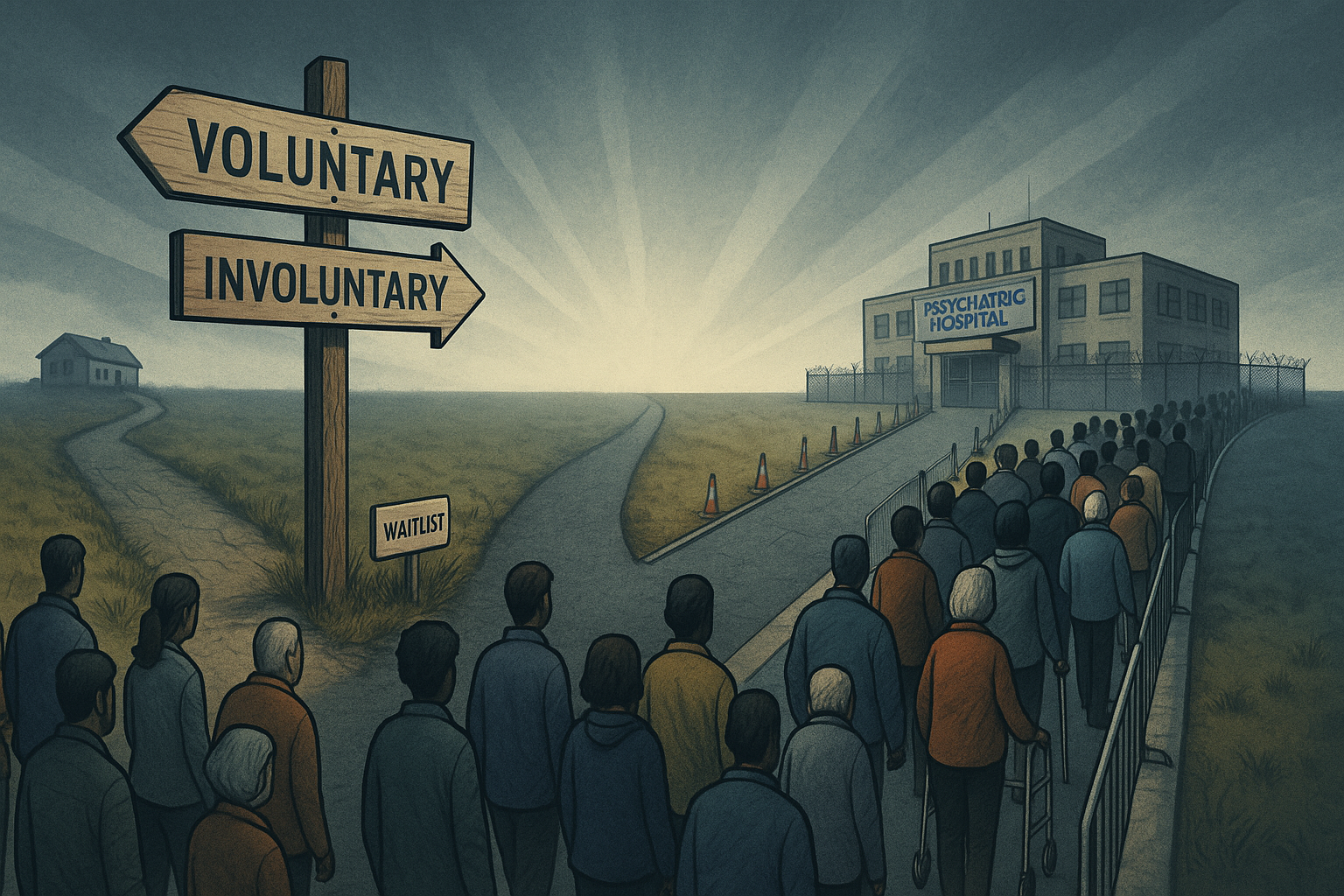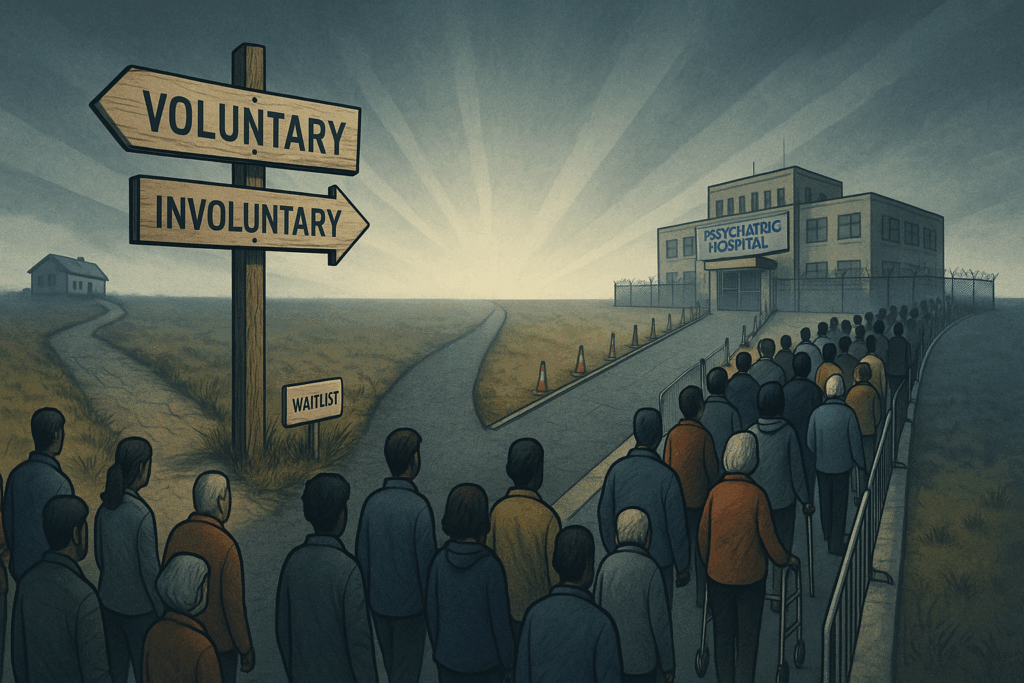A new qualitative study from British Columbia in Canada examines how service users and clinicians are impacted when mental health systems shift toward coercive involuntary treatments.
The authors interviewed individuals who had been detained and treated under the province’s Mental Health Act, as well as the professionals responsible for its application. Their accounts describe a system that funnels crises toward involuntary care when community support is scarce and hospitals are under pressure.
Across five focus groups with people who had experienced involuntary treatment and interviews with clinicians, lawyers, and peer workers, the authors identified seven themes. Participants cited a shortage of voluntary, community-based care; fear, trauma, and lingering distrust tied to coercive practices; the promise of peer support; an “all or nothing” approach to consent; a narrow menu of hospital interventions; stigma and discrimination; and providers’ doubts about the evidence behind mandated care.
“I feel like that we get a little bit more backed into a corner to do involuntary treatment,” one clinician said, describing how gaps in housing, income, and follow-up services shape decisions.
Another participant, reflecting on seclusion and injections, called it “a pretty brutal assault to one’s human dignity.
The preprint, posted on medRxiv, comes from Mary Elizabeth Snow and Amy Salmon at the University of British Columbia’s Faculty of Medicine and the Centre for Advancing Health Outcomes in Vancouver; Jenyo Banjo is the corresponding author. Co-authors include Colleen Varcoe of UBC’s School of Nursing and Marina Morrow, a professor at York University and Director of the Mad Studies Hub. The paper has not yet been peer reviewed.

You’ve landed on a MIA journalism article that is funded by MIA supporters. To read the full article, sign up as a MIA Supporter. All active donors get full access to all MIA content, and free passes to all Mad in America events.
Current MIA supporters can log in below.(If you can’t afford to support MIA in this way, email us at [email protected] and we will provide you with access to all donor-supported content.)
Donate
Current Supporters Log-In
Previous articleAntidepressants Took Our Sex Lives Away — We Are Taking Them Back: Brooke Siem & Angie PeacockNext article“In the face of so much cruelty one becomes more mystical” Bernabé De Vincensi. 
MIA Research News Editor: Justin M. Karter is the lead research news editor for Mad in America. He completed his doctorate in Counseling Psychology at the University of Massachusetts Boston. He also holds graduate degrees in both Journalism and Community Psychology from Point Park University. He brings a particular interest in examining and decoding cultural narratives of mental health and reimagining the institutions built on these assumptions.

